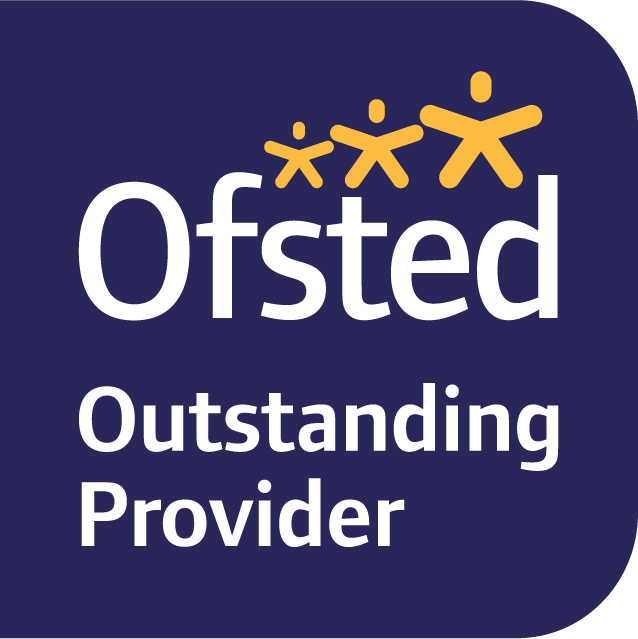Why Children Flourish at FANS
What we provide
The children choose, the teachers lead, together they play to learn. Our experienced staff are highly-qualified. We nurture the children:
- We talk to the children all the time, stretching their learning.
- Every week we plan meaningful things for each child to do.
Children feel joy and wonder. They get messy, make mistakes, and learn.
We are fully inclusive maintained schools, where everyone is valued
We work in partnership with children and their families:
- from all faiths and none,
- from all cultures, and
- with the widest range of needs.
“The child has a hundred languages”
(Loris Malaguzzi; translated by Lella Gandini)
At FANS we speak as many as we can
We design our building and our garden for play.
The foundations of our teaching are Margaret McMillan and the evidence-based theories of Fröbel, Vygotsky, and the Reggio Emilia Educational Project.
We combine this with the latest early years thinking from the East London Research School, the Education Endowment Foundation, and the Forest School Association.
“To move to run, to find things out by new movement, to feel one’s life in every limb, that is the life of early childhood.”
Margaret McMillan (1930)
“There are three teachers of children: adults, other children and the environment.”
Loris Malaguzzi, Reggio Emilia Educational Project
“Play is the highest expression of human development in childhood,
for it alone is the free expression of what is in a child's soul.”
Friedrich Fröbel (1912)
Families teach
When your child joins FANS we build a strong, respectful relationship with you.
You teach us about your child
Highly-trained and qualified staff teach
Our Executive Headteacher is a qualified teacher and an artist. She leads the creative development of both children and staff
Children build strong relationships with their key people. The high-quality interactions between them create sustained shared thinking: practitioners are genuinely interested, listen, and extend children's thoughts and knowledge, model correct language, and extend vocabulary. They collaborate to construct meanings and interpretations together.
Learning is child-initiated but adult-led: children are guided, not directed to achieve our high aspirations.
Week by week, practitioners plan scaffolded learning: tasks that are just beyond the children’s current capability, consolidating and expanding their thinking and knowledge by introducing new language, skills, and ideas. We assess what children are learning and plan for their next steps using our Curricular Goals. These include the 7 areas of learning of the Early Years Foundation Stage.
We use the ‘Shared Sustained Thinking and Emotional Wellbeing’ (SSTEW scale) to assess and improve our practice.
In-school
Tales Toolkit makes storytelling the core of learning and problem-solving for any situation: imaginative play, engineering, mathematics, or communication.
Theatre, cooking, and working with artists and musicians broaden children’s experience.
Forest School practice connects children with nature and the changing seasons, benefiting them and the local area and wildlife as they learn to love, appreciate and take care of our natural world. As they take risks and overcome challenges, children develop self-confidence and improve self-esteem, emotional literacy and social skills, as well as physical and mental health. Forest School increases problem-solving skills, vocabulary and understanding.
Out of school
Trips out of school help children understand the world beyond their own homes. We go to the library, museums, and galleries, places of natural beauty and of worship.
Children teach
- They create
- They experience joy and wonder
- They try new things and get messy
- They make mistakes and learn from them
- They take risks and make judgements on how to keep safe while exploring
The environment teaches
Learning is inside and outside, whatever the weather (we have the will and the wellies).
Our central piazza, where children meet and mingle, our side rooms for quieter times, and our outdoor space are set up to enable children to explore, to make choices independently, and to collaborate with others. Our furniture and block play are made by world-leading experts, Community Playthings. Read about them on their website.
Children are surrounded by meaningful, play-based activities with an explicit purpose, such as clay or construction materials, drawing or painting.
The environment is rich in number and shape, space and measure experiences which allow children to solve mathematical problems, initially with support and then independently.
Core books present new and familiar ideas, people and worlds, with rich stories that develop a love of reading.
The adult-led snack table supports children to learn to make healthy choices, discuss hygiene and healthy practices, explore new healthy foods, and practise their fine motor skills as well as their social, communication, and mathematical skills.
Animals help children learn to care and be gentle.
We use the 'Early Childhood Environment Rating’ (ECERS). This helps us to think about the quality of our learning environment. We spot things we can change so that we grow and improve.






